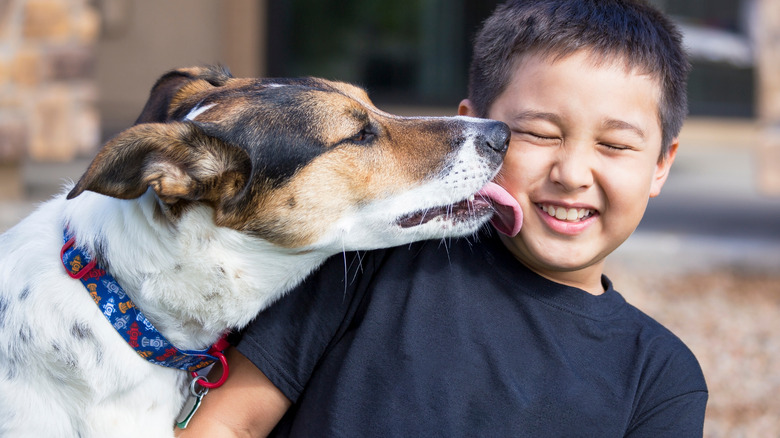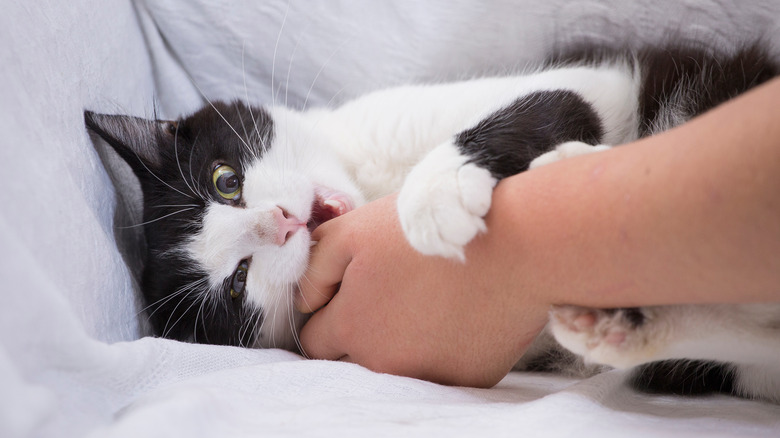Diseases Than Can Pass Between You And Your Pets
We don't often think of getting diseases from our pets, and while it's rare, it can happen. These diseases are called zoonotic diseases, and according to the Centers for Disease Control and Prevention (CDC), they are caused by viruses, bacteria, parasites, and even fungi. One of the most common diseases dogs can give their humans is ringworm. Animals with ringworm usually have patches of bare skin, dry skin, inflamed areas, dry nails, and excessive scratching (via PetMD). In humans, it is identified by a large ring that surrounds a patch of scaly, bumpy skin.
Hookworms, which are intestinal parasites, can spread from dogs to humans. Signs of hookworms in animals include anemia, pale gums, weight loss, poor growth, bloody diarrhea, and even death. Hookworms don't infect human intestines, but the larvae can burrow under the skin. If the condition isn't treated, the parasites can reach internal organs and even the eyes, resulting in severe complications, according to the American Kennel Club.
Diseases cats can pass to humans
Cat scratch disease, known as Bartonella, is caused by bacteria in cat saliva. Felines become infected through fleas, and symptoms include fever, gingivitis, and sluggishness. It can be passed to humans from cat scratches, licks, or bites. In humans, signs of this disease include a swollen bite or scratch that becomes infected. Swollen glands, headache, decreased appetite, and joint pain are also symptoms (via Massachusetts Society for the Prevention of Cruelty to Animals).
Another disease humans can contract from cats is toxoplasmosis. Parasites living in the intestinal tracts of cats cause this condition. Most of the time, people come into contact with the parasite by cleaning out litter boxes. Anyone can become infected with toxoplasmosis, but most healthy people can fight it off. This disease is especially dangerous for people with weakened immune systems and pregnant people, reports Cleveland Clinic. To avoid contracting diseases from any pets, always wash your hands after being around animals and avoid bites and/or scratches, per the CDC.


